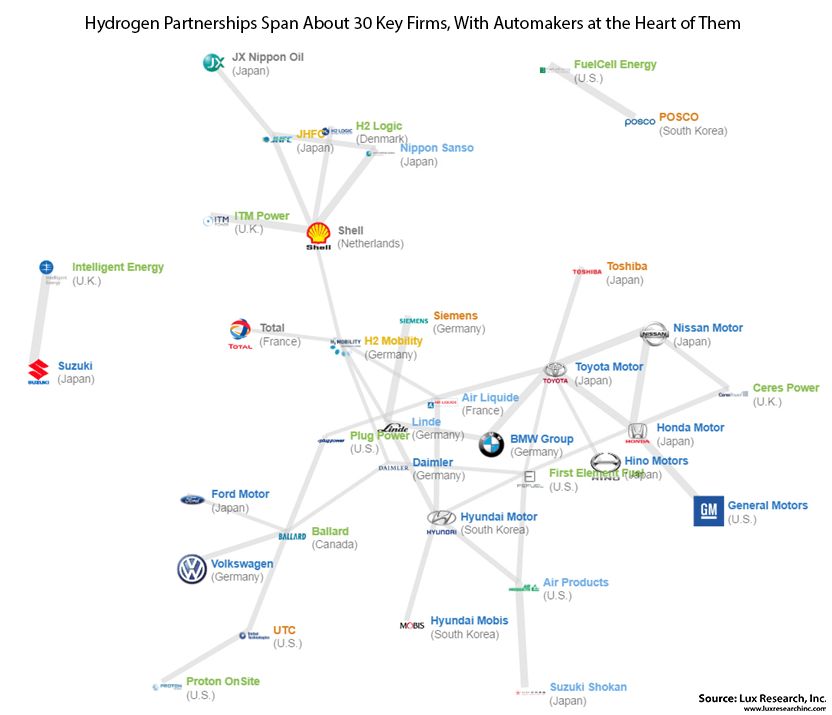Automakers top the charts in hydrogen infrastructure innovation with a 40% share of hydrogen infrastructure patents, as they look to the promise of cars with no carbon emissions. However, the hydrogen economy is evolving in an isolated, Japan-specific way and lacks support from other parts of the value chain, questioning the viability of the concept, according to a new report from Lux Research.
“A few automakers led by Toyota are putting their money where their mouth is, but the rest of the value chain lags behind by orders of magnitude,” says Cosmin Laslau, Lux Research director in research products and lead author of the report.
“Fuel cell firms received only $160 million from VCs and private equity in 2015, while the U.S. Department of Energy awarded $100 million for R&D, and leading hydrogen firms spent a mere $70 million on R&D,” he adds.
Lux Research analysts evaluated innovation in the hydrogen economy by evaluating patent filings and partnerships. Some of their findings are as follows:
- Japan and Korea dominate. Japan leads nations in hydrogen infrastructure innovation with a 45% share, while Korea accounts for 25%, and the U.S. and U.K. hold a 10% share each. But Japan looks like a lone wolf, raising concerns that the country may be developing technology that may see adoption in the rest of the world.
- Japan’s “big three” lead in partnerships. Within automakers, the strongest relationships formed are between Japan’s big three: Toyota, Honda and Nissan. Toyota not only is at the central point of partnerships with other carmakers, but also has alliances with heavy vehicles maker Hino, specialists such as FirstElement Fuel, and industrial gas incumbents such as Air Liquide.
- Industrial gas giants are key. The industrial gas giants Air Liquide, Air Products and Linde are key in the hydrogen network, playing a central role by virtue of the supply agreements and development partnerships with OEMs – typically around deploying some initial fueling infrastructure together.
The report, titled “Innovating and Networking in Fuel Cells: Analyzing the Key Players in Today’s Hydrogen Infrastructure Value Chain,” is part of the Lux Research Energy Storage Intelligence, Distributed Generation Intelligence, and Alternative Fuels Intelligence services.







